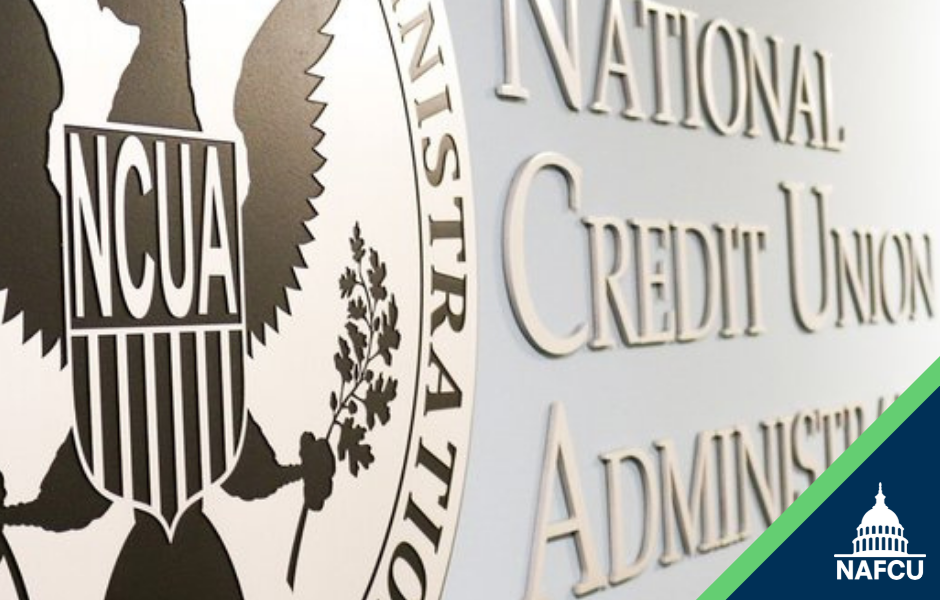Newsroom
NAFCU and Inlclusiv share feedback on subordinated debt rule with NCUA

In a joint letter to NCUA Secretary of the Board Melanie Conyers-Ausbrooks, NAFCU and Inclusiv, a national association for community development financial institutions (CDFIs) and low-income credit unions (LICUs), shared comments on the NCUA’s proposed amendments to its 2020 Subordinated Debt Rule.
The proposed rule would amend the definition of “grandfathered secondary capital” to include secondary capital issued to the U.S. Government or one of its subdivisions under an application approved before Jan. 1, 2022 and was proposed during the board’s September meeting.
“The proposed rule ensures that LICUs that have already submitted [Emergency Capital Investment Program (ECIP)] applications will not need to revise an accompanying secondary capital plan to conform with new procedural requirements in the Subordinated Debt Rule when ECIP investment decisions are made in 2022,” wrote the organizations. In addition, both associations noted their support for the NCUA’s, “grandfathering of secondary capital plans approved in conjunction with LICU applications.”
The proposed rule would also be instrumental in facilitating efficient deployment of ECIP funding in low-and moderate-income communities, especially those hit hardest by the pandemic. The associations wrote that the NCUA Board’s progress to move toward credit unions accepting long-term capital as a debt obligation was a promising sign.
In the letter, both associations mentioned that the parameters of the current secondary rule are more than sufficient for addressing regulatory capital treatment of ECIP investments, stating, “the ECIP, being administered exclusively by Treasury, involves a more structured type of subordinated debt offering, and the issuances contemplated by the program were developed around the requirements of the current secondary capital rule.”
Of note, NAFCU and Inclusiv did share that they do not support a maximum maturity for ECIP investments that truncates the useful life of the funding as regulatory capital, noting that it would, “ impair the impact of the funding in low- and moderate-income communities that need longer term capital infusion.”
Both associations do, however, appreciate the NCUA responsiveness to these and other concerns, as seen in the Agency’s recent Letter to Credit Unions. The associations suggested NCUA conduct a broader reevaluation of the Subordinated Debt Rule in 2022 to create a more fitted framework for the subordinated debt.
NAFCU regularly engages with NCUA to ensure credit union concerns are heard, had has encouraged credit unions to participate in submitting comments on related Regulatory Alerts. For more information, view the association’s Regulatory Alert breaking down the proposed rule. The association will continue to keep credit unions informed on how this rulemaking will impact them and their members. Read the full letter here.
Share This
Related Resources
Add to Calendar 2024-06-26 14:00:00 2024-06-26 14:00:00 Gallagher Executive Compensation and Benefits Survey About the Webinar The webinar will share trends in executive pay increases, annual bonuses, and nonqualified benefit plans. Learn how to use the data charts as well as make this data actionable in order to improve your retention strategy. You’ll hear directly from the survey project manager on how to maximize the data points to gain a competitive edge in the market. Key findings on: Total compensation by asset size Nonqualified benefit plans Bonus targets and metrics Prerequisites Demographics Board expenses Watch On-Demand Web NAFCU digital@nafcu.org America/New_York public
Gallagher Executive Compensation and Benefits Survey
preferred partner
Gallagher
Webinar
Add to Calendar 2024-06-21 09:00:00 2024-06-21 09:00:00 The Evolving Role of the CISO in Credit Unions Listen On: Key Takeaways: [01:30] Being able to properly implement risk management decisions, especially in the cyber age we live in, is incredibly important so CISOs have a lot of challenges here. [02:27] Having a leader who can really communicate cyber risks and understand how ready that institution is to deal with cyber events is incredibly important. [05:36] We need to be talking about risk openly. We need to be documenting and really understanding what remediating risk looks like and how you do that strategically. [16:38] Governance, risk, compliance, and adherence to regulatory controls are all being looked at much more closely. You are also seeing other technology that is coming into the fold directly responsible for helping CISOs navigate those waters. [18:28] The reaction from the governing bodies is directly related to the needs of the position. They’re trying to help make sure that we are positioned in a way that gets us the most possibility of success, maturing our postures and protecting the institutions. Web NAFCU digital@nafcu.org America/New_York public
The Evolving Role of the CISO in Credit Unions
preferred partner
DefenseStorm
Podcast
AI in Action: Redefining Disaster Preparedness and Financial Security
Strategy
preferred partner
Allied Solutions
Blog Post
Get daily updates.
Subscribe to NAFCU today.
